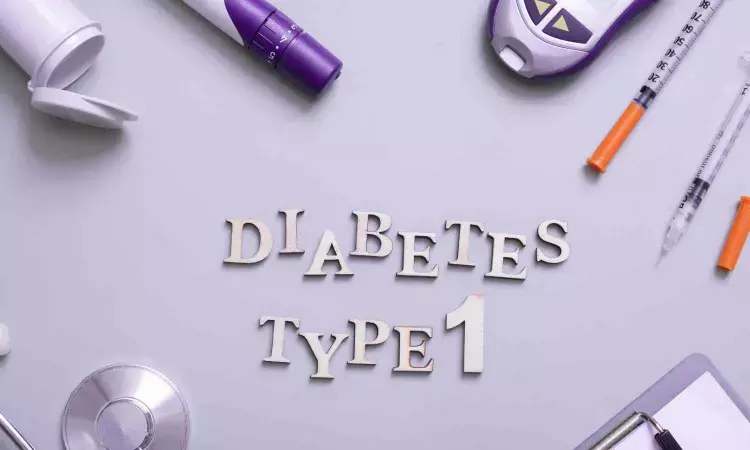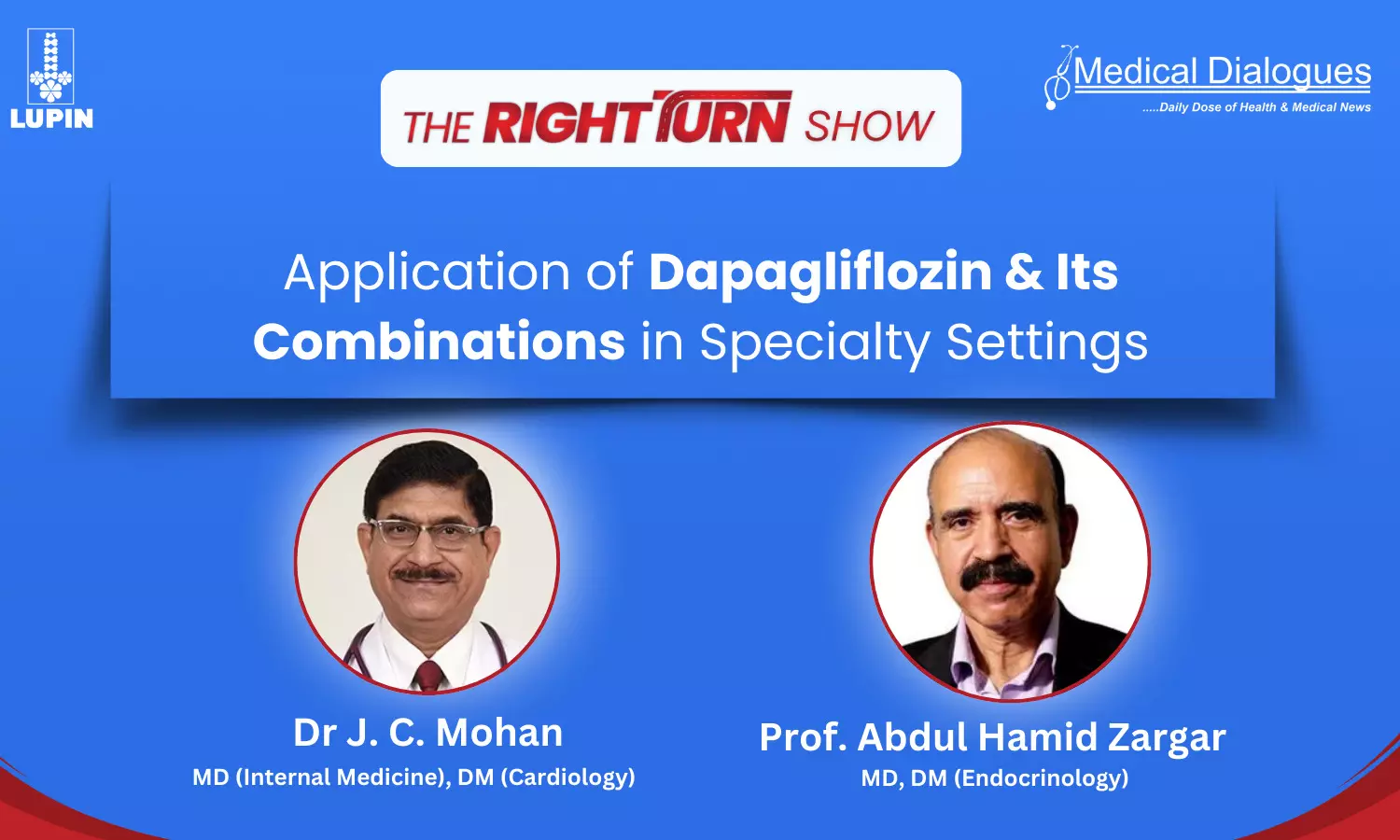- Home
- Medical news & Guidelines
- Anesthesiology
- Cardiology and CTVS
- Critical Care
- Dentistry
- Dermatology
- Diabetes and Endocrinology
- ENT
- Gastroenterology
- Medicine
- Nephrology
- Neurology
- Obstretics-Gynaecology
- Oncology
- Ophthalmology
- Orthopaedics
- Pediatrics-Neonatology
- Psychiatry
- Pulmonology
- Radiology
- Surgery
- Urology
- Laboratory Medicine
- Diet
- Nursing
- Paramedical
- Physiotherapy
- Health news
- Fact Check
- Bone Health Fact Check
- Brain Health Fact Check
- Cancer Related Fact Check
- Child Care Fact Check
- Dental and oral health fact check
- Diabetes and metabolic health fact check
- Diet and Nutrition Fact Check
- Eye and ENT Care Fact Check
- Fitness fact check
- Gut health fact check
- Heart health fact check
- Kidney health fact check
- Medical education fact check
- Men's health fact check
- Respiratory fact check
- Skin and hair care fact check
- Vaccine and Immunization fact check
- Women's health fact check
- AYUSH
- State News
- Andaman and Nicobar Islands
- Andhra Pradesh
- Arunachal Pradesh
- Assam
- Bihar
- Chandigarh
- Chattisgarh
- Dadra and Nagar Haveli
- Daman and Diu
- Delhi
- Goa
- Gujarat
- Haryana
- Himachal Pradesh
- Jammu & Kashmir
- Jharkhand
- Karnataka
- Kerala
- Ladakh
- Lakshadweep
- Madhya Pradesh
- Maharashtra
- Manipur
- Meghalaya
- Mizoram
- Nagaland
- Odisha
- Puducherry
- Punjab
- Rajasthan
- Sikkim
- Tamil Nadu
- Telangana
- Tripura
- Uttar Pradesh
- Uttrakhand
- West Bengal
- Medical Education
- Industry
Technosphere insulin and Degludec non-inferior to usual care for postprandial hyperglycemia in T1 Diabetics: Study

Tamil Nadu Scales Up Type 1 Diabetes Treatment Facilities
A recent study published in the journal Diabetes Care found that the combination of Technosphere insulin (TI) plus insulin degludec is non-inferior to the usual care of an automated insulin delivery (AID) system or multiple daily insulin injections (MDI) for controlling postprandial diabetes in individuals with Type 1 diabetes.
Only a limited proportion of adults with type 1 diabetes meet the Glycemic targets set by the American Diabetes Association. The delayed onset of rapid-acting analog (RAA) insulin makes it difficult for Automated insulin delivery (AID) systems to prevent hyperglycemia. Inhaled Technosphere insulin (TI) is better at offering faster onset and dissipation, reducing post-meal hyperglycemia and hypoglycemia risk. Despite the drug's limited use, despite FDA approval, trials comparing TI with traditional insulin regimens were done. Researchers from the U.S.A. conducted a study to evaluate a regimen of inhaled Technosphere insulin (TI) plus insulin degludec in adults with type 1 diabetes, who were predominately using either an automated insulin delivery (AID) system or multiple daily insulin injections (MDI) with continuous glucose monitoring before participating in the study.
A randomized trial was conducted at 19 endocrinology practices in the U.S., including individuals aged ≥18 years old with type 1 diabetes for at least 6 months. Inclusion criteria were adhering to the same treatment regimen for at least 3 months, like the AID nonautomated pump, or MDI, and having an HbA1c level < 11.0%. Eligible participants were randomly assigned (1:1) with the use of a block design separately for each site to either the TI-degludec regimen or the usual care (UC) group. HbA1c was measured at baseline and after 17 weeks, along with forced expiratory volume in 1 s, continuous glucose monitoring (CGM), and a patient-reported outcome survey.
Findings:
- AID was used by 48% and MDI by 45% before the study.
- Mean ± SD HbA1c was 7.57% ± 0.97% at baseline and 7.62% ± 1.06% at 17 weeks in the TI group.
- Mean ± SD HbA1c was 7.59% ± 0.80% at baseline and 7.54% ± 0.77% at 17 weeks in the UC group.
- In the TI group, HbA1c improved by >0.5% from baseline to 17 weeks in 21 % of the participants and 5% of them in the UC group.
- In the UC group, HbA1c worsened by >0.5% from baseline to 17 weeks in 26% of the TI group and 3% of the UC group.
- The most common TI side effect was a brief cough.
- About eight participants discontinued TI due to side effects.
Thus, the study concluded that TI and degludec were non-inferior to UC. A similar number of participants showed improvements and worsening of glycemic control, so self-management of TI with degludec is necessary with free frequent TI inhalation during the day and evening. The researchers also suggested that TI with degludec can be used as a viable option for patients with type 1 diabetes. Hence, clinicians should carefully select the patients while prescribing this combination for optimal glycemic control.
Further reading: A Randomized Trial Comparing Inhaled Insulin Plus Basal Insulin Versus Usual Care in Adults With Type 1 Diabetes. Doi: https://doi.org/10.2337/dc24-1832.
BDS, MDS
Dr.Niharika Harsha B (BDS,MDS) completed her BDS from Govt Dental College, Hyderabad and MDS from Dr.NTR University of health sciences(Now Kaloji Rao University). She has 4 years of private dental practice and worked for 2 years as Consultant Oral Radiologist at a Dental Imaging Centre in Hyderabad. She worked as Research Assistant and scientific writer in the development of Oral Anti cancer screening device with her seniors. She has a deep intriguing wish in writing highly engaging, captivating and informative medical content for a wider audience. She can be contacted at editorial@medicaldialogues.in.
Dr Kamal Kant Kohli-MBBS, DTCD- a chest specialist with more than 30 years of practice and a flair for writing clinical articles, Dr Kamal Kant Kohli joined Medical Dialogues as a Chief Editor of Medical News. Besides writing articles, as an editor, he proofreads and verifies all the medical content published on Medical Dialogues including those coming from journals, studies,medical conferences,guidelines etc. Email: drkohli@medicaldialogues.in. Contact no. 011-43720751




